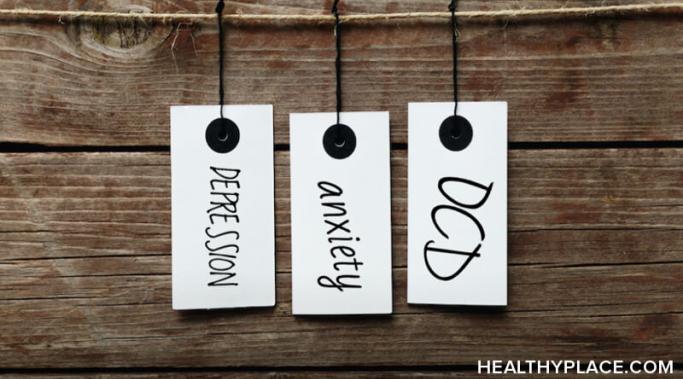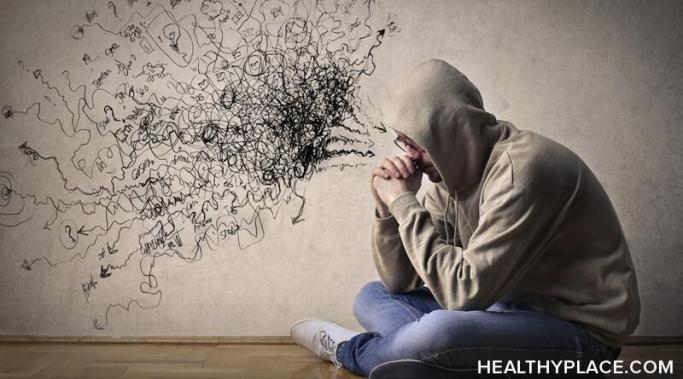Health anxiety used to be called hypochondria, and it's a highly stigmatized mental health condition. Instead of being taken seriously, health anxiety is often reduced to being "dramatic." I have dealt with health anxiety on and off for the last seven years, and I want to share my experience so others won't have to feel as alone as I have.
Recovering from Mental Illness
Psychiatric medication is a tricky topic in the world of mental health for a lot of reasons. These drugs have a dark history of being used for the convenience of doctors rather than the wellbeing of patients, the pharmaceutical industry makes a huge profit off of them, and they come with a lot of very negative mental health stigma.
When I first read online that once I started really digging in to my recovery, things would get worse before they got better, I thought I understood. I thought it meant that acknowledging my pain would cause me more pain at first, but then it would heal and I would be "better." I knew that was a naive way of looking at things, but I still believed that would generally be the process. Boy, was I wrong.
Countless times, people have told me that a person can only start to heal if they are ready to do the work themselves. They can't be forced into improving their lives. Despite hearing this message over and over, part of me really thought I could convince other people to heal and "get better" if I just said and did the right thing. This probably comes from a history of being responsible for co-regulating my parents' emotions. I grew up having to say and do the right thing to maintain my worth, and for a long time, that felt normal.
Behavioral change isn't the only change needed in recovery from mental illness, but it is a key part of feeling better and living the life you want to live. But it is so incredibly hard. I recently had a frustrating, but productive, conversation with my therapist about how I need to start making behavioral changes if I want to keep improving my mental health, and the reason it was so frustrating is because I have never known how to change my behavior.
Recovery from mental illness is a long, complicated path, and even though the whole point of recovery is to help us grow, it still comes with limitations, setbacks, and collateral damage. Sometimes, in the midst of all the negatives, I lose sight of the positives, lose sight of hope. And I can't help but wonder, what if I never recover from mental illness?
Let's face it: there are a lot of aspects of mental illness that can be traumatic, and mental health misdiagnosis can also be traumatic. What happens when we don't even have the mental illness we think we have? I was diagnosed with bipolar disorder six years ago, found out that diagnosis was incorrect two years ago, and now a huge part of my recovery is dealing with the fallout and trauma of that misdiagnosis.
I've never really thought that feeling numb was a problem for me. I've always had issues with feeling too much. Even when I'm depressed, I don't usually relate to the emptiness that many others describe. Even my depression is full of emotions, from self-loathing to existential dread. But over the last few years, I have learned to cope with my depression better and better, so when those depressive emotions resurface, I panic and try to shove them away. Which is why, after years of depression and anxiety, I am just now starting to experience numbness.
If you've never heard of the term "time-blindness," you aren't alone. I've been researching and writing about mental health for nearly 10 years, and I only heard the term last year, even though it is a major problem for a lot of people, especially those with attention-deficit/hyperactivity disorder (ADHD). Typically on this blog, I talk about how I am recovering from depression and anxiety, but I have strongly identified with the symptoms of ADHD for a few years now, ever since I started reading resources on what ADHD looks like in girls and adults. Once this pandemic is over, I plan on being professionally evaluated to see if I actually have ADHD or if my ADHD symptoms are connected to something else. Regardless of a diagnosis, I definitely experience time-blindness, and it makes life in general difficult, but it can also create big problems for my mental health.
I am a big believer in the idea that writing can help with recovery from mental illness. I am a professional freelance writer now, but even before I made my living by writing, I used writing in a variety of ways to help with my recovery from mental illness.









